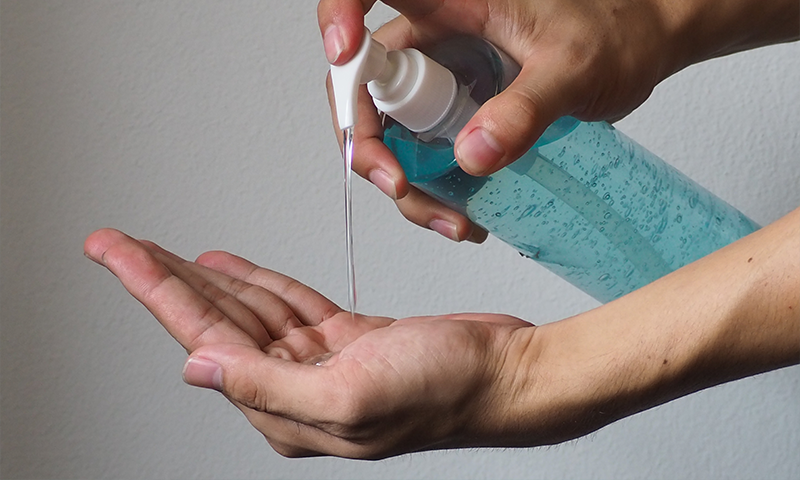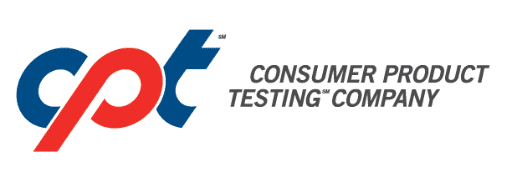Hand Sanitizer Testing
We know how important it is to continue to bring new and effective products to market in the time of COVID-19 and especially those such as hand sanitizers that actively work to safeguard the health of the general public.
CPT℠ Labs can provide strategic planning assistance, regulatory guidance and testing services that are appropriate for launching OTC consumer hand sanitizer products in accordance with the OTC Drug Monograph Final Rule.
Our team is working diligently to assure the personalized level of service that we stand behind as a Company, whilst simultaneously meeting all government requirements. From strategic planning assistance to regulatory guidance and testing services, CPT℠ is here to help and act as a resource for you and your business. CPT℠’s state-of-the-art Analytical Chemistry and Microbiology Laboratories are professionally staffed and stand ready to assist in whatever your needs may be.

OTC Drug Monograph Final Rule Requirements: Hand Sanitizers
Liquid, gel, foam, aerosol spray or wipes.
Ethyl Alcohol 60 – 95% (v/v)
or
Isopropyl Alcohol 70 – 91.3% (v/v)
or
Benzalkonium Chloride (Range unspecified)
May include fragrance, emollients and thickeners.
Pharmaceutical Grade (USP or FCC) ONLY
Hand Sanitizer Final Formulation Testing Requirements
The OTC-Drug Monograph Final Rule for Consumer Antiseptic Rubs does not include specific testing requirements for hand sanitizer final formulations. The FDA explains that since they do not find any active ingredient(s) to be GRASE (Generally Regarded as Safe and Effective) and thus suitable for inclusion in the Monograph, they will not establish testing requirements for final formulations until such time that GRASE status has been granted to at least one of the three active ingredients currently under consideration.
In the absence of specific testing requirements, one may refer to the Food, Drug and Cosmetic Act and 21 CFR Parts 210 and 211 whereby it is stated that all drug products must satisfy basic requirements for identity, strength, quality and purity. From this, we may surmise what the FDA might deem to be suitable testing of hand sanitizer final formulations however it is not a regulatory certainty by any means.
It should be noted that the OTC-Drug Monograph Final Rule for Consumer Antiseptic Rubs does discuss testing which includes in vitro Time Kill Studies and also in vivo human clinical studies however this testing is what the FDA requires for determining the GRASE status of an active ingredient for inclusion into the Monograph; it is not intended as final formulation testing.
Let CPT℠ Assist in the Protection of Your “Brand” and Your Reputation
Since it was clearly shown that illegal and in some instances, dangerous hand sanitizer products had been offered for sale within the US during the COVID-19 pandemic, both FDA and FTC have become extremely vigilant of hand sanitizer product launches. If you are planning to launch a hand sanitizer product in accordance with the OTC-Drug Monograph Final Rule for Consumer Antiseptic Rubs, let us assist so that your product launches legally and in the shortest amount of time.
CPT can provide the required testing of Ethyl Alcohol, Isopropyl Alcohol and Benzalkonium Chloride Active Pharmaceutical Ingredients (APIs). We can also conduct assay, impurity screening and stability testing of finished hand sanitizer batches with fast turnaround times. We can tell you if the product you have purchased or are considering to purchase is a legal product, free from disallowed ingredients and toxic impurities.
CPT’s state-of-the-art Analytical Chemistry and Microbiology Laboratories are professionally staffed and stand ready to assist you in actively protecting your “brand” and your reputation as a whole. Why not contact us today?
Request a Quote for Hand Sanitizer Testing
Please Note: CPT℠ only performs testing for companies. We do not perform product testing for the general public.
| OTC Drug Monograph Final Rule | FDA Temporary Policy | |
|---|---|---|
| Product Form | Liquid, gel, foam, aerosol spray or wipes. | Liquid ONLY. |
| Active Ingredients Allowed (Only 1 Permitted) | Ethyl Alcohol 60 – 95% (v/v) or Isopropyl Alcohol 70 – 91.3% (v/v) or Benzalkonium Chloride (Range unspecified) | Alcohol (Ethyl Alcohol) 80% (v/v) or Isopropyl Alcohol 75% (v/v) (Benzalkonium Chloride is not allowed.) |
| Other Ingredients Allowed | No specific requirements. (May include fragrance, emollients and thickeners.) | Glycerin (1.45%), Hydrogen Peroxide (0.125%) and Purified Water only. (No other ingredients allowed.) |
| Alcohol Grade | Pharmaceutical Grade (USP or FCC) ONLY. | Non-Pharmaceutical Grades allowed but must meet specific impurity limits. |
| OTC Drug Monograph Final Rule | FDA Temporary Policy | |
|---|---|---|
| Facility | Must be registered with FDA. | Must be registered with FDA. |
| Compliance | Full GMP compliance. | Relaxed requirements, so long as identity, strength and purity of the product is assured. |
| Stability Testing Prior to Launch | Required. | Not Required. |
| OTC Drug Monograph Final Rule | FDA Temporary Policy | |
|---|---|---|
| Assay | Ethyl Alcohol: 94.9% – 96.0% (v/v) prior to denaturing. Dehydrated Ethyl Alcohol: NLT 99.0% (v/v) Isopropyl Alcohol: NLT 99.0% | Ethyl Alcohol: NLT 94.9% (v/v) prior to denaturing. Isopropyl Alcohol: NLT 99.0% |
| Impurity Limits for Ethyl Alcohol: (FDA strongly suggests that this testing be conducted by an FDA-registered GMP Laboratory) | Methanol: NMT 200 ppm Benzene: NMT 2 ppm Acetaldehyde and Acetal: NMT 10 ppm Sum of all other impurities: NMT 300 ppm No allowable exceptions. | Methanol: NMT 630 ppm Benzene: NMT 2 ppm Acetaldehyde: NMT 50 ppm Acetal (1,1-diethoxyethans): NMT 50 ppm Sum of all other impurities: NMT 300 ppm If the sum of all other impurities exceeds 300 ppm but all of the specified impurities (above) meet their limits, the alcohol may be acceptable if each additional individual impurity is identified and meets the following requirements: Acetone: NMT 4,400 ppm n-Propanol (1-Propanol): NMT 1,000 ppm Ethyl Acetate: NMT 2,200 ppm Sec-Butanol (2-Butanol): NMT 6,200 ppm Iso-Butanol (2-Methyl-1-Propanil): NMT 21,700 ppm n-Butanol (1-Butanol): NMT 1,000 ppm Iso-Amyl Alcohol: NMT 4,100 ppm Amyl Alcohol: NMT 4,100 ppm |
| Impurity Limits for Isopropyl Alcohol: (FDA strongly suggests that this testing be conducted by an FDA-registered GMP Laboratory) | Methanol: NMT 200 ppm Each Additional Individual Impurity: NMT 1,000 ppm Total of all Impurities: NMT 10,000 ppm | Methanol: NMT 200 ppm |
| Other Testing | Meets USP Monograph Requirements | No other testing required. |
The OTC-Drug Monograph Final Rule for Consumer Antiseptic Rubs does not include specific testing requirements for hand sanitizer final formulations. The FDA explains that since they do not find any active ingredient(s) to be GRASE (Generally Regarded as Safe and Effective) and thus suitable for inclusion in the Monograph, they will not establish testing requirements for final formulations until such time that GRASE status has been granted to at least one of the three active ingredients currently under consideration.
In the absence of specific testing requirements, one may refer to the Food, Drug and Cosmetic Act and 21 CFR Parts 210 and 211 whereby it is stated that all drug products must satisfy basic requirements for identity, strength, quality and purity. From this, we may surmise what the FDA might deem to be suitable testing of hand sanitizer final formulations however it is not a regulatory certainty by any means.
In contrast, the FDA has indicated that hand sanitizers manufactured under the Temporary COVID Policy should be free from the impurities listed in their Temporary Policy, and that each batch should be tested to assure its identity (the alcohol listed on the label is the same alcohol in the batch), strength (Assay of the alcohol in the batch conforms to the labeled potency), and purity which many interpret as ‘microbiological purity’ which is demonstrated by conducting USP <61> and <62> Microbial Limits Testing.
It should be noted that the OTC-Drug Monograph Final Rule for Consumer Antiseptic Rubs does discuss testing which includes in vitro Time Kill Studies and also in vivo human clinical studies however this testing is what the FDA requires for determining the GRASE status of an active ingredient for inclusion into the Monograph; it is not intended as final formulation testing. Since the FDA does indicate specific requirements for hand sanitizer testing manufactured under their Temporary Policy it would be prudent to conduct this same batch testing (at a minimum) for products launched under the OTC Monograph pathway.
